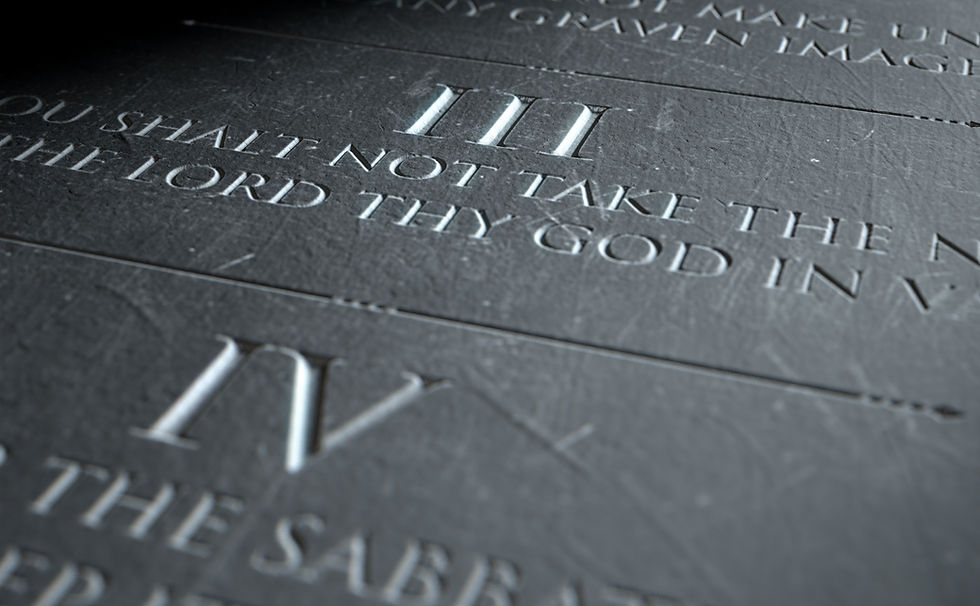The Elimination of Rolling Voting Protects Election Integrity
- Russell Withers

- Oct 17, 2019
- 3 min read
Updated: Sep 13, 2024

The Texas Tribune has a recent piece about House Bill 1888, an election integrity measure authored by Representative Greg Bonnen that ends the practice of “rolling voting,” which allows mobile polling stations to move from location to location during early voting periods. In the abstract, rolling voting sounds like a valuable service that seeks to maximize voter turnout. But in practice, it has been abused. Quite different from valuable “get out the vote” campaigns, mobile voting locations spend the entire early voting period moving from location to location, often seeking out enclaves of voters likely to vote a certain way. HB 1888 will rightfully curb this abuse.
Despite the Tribune's headline stating "Texas ended temporary voting locations to curb abuse. Now rural and young voters are losing access," HB 1888 does not deny anyone the franchise. It does not restrict early voting. It doesn’t even prohibit mobile voting locations. But the piece tells a different story, and if you follow the Texas Tribune on Social media, you might have seen this quote as the accompanying blurb previewing the posted story:

Fact check: False.
The students to which the quote refers are students at the University of Texas at Arlington, which is located in Tarrant County. As it happens, Tarrant County has 44 full-time early voting locations. Ten of them are within ten miles of UT-Arlington’s campus. Five of them are within five miles of campus. And if that’s too burdensome, there are two early voting locations within two miles of the campus. Here they are:
Tarrant County Sub-Courthouse (700 E Abram Street)
B J Clark Annex (603 Southeast Parkway)
Google maps says the Sub-Courthouse is eight minutes from campus on bike. The Annex is only seven minutes. Early voting gives students nearly two weeks to find a convenient time to travel a short distance to any location in the county. Furthermore, Tarrant County now has countywide voting, which means that anybody registered in Tarrant County can vote at any of 340 polling locations on election day, including Ruby Ray Swift Elementary School, which is literally adjacent to a UT-Arlington campus parking lot. So, if early voting isn’t convenient enough, students can easily vote on election day.
The Tribune’s use of Williamson County is also worthy of criticism. The article cites Emily Sydnor, an assistant professor of political science from Southwestern University in Georgetown who explains that likelihood of voting drops with distance. And now, the professor explains, without a traveling polling location to do the work for them, the nearest polling location for students who live on campus is “now just more than a mile away.” That is walking distance, which the professor acknowledges in the following quote from the piece:
“We all have an obligation to an extent to exercise our civic duty … and sometimes that’s going to mean putting in a little effort,” Sydnor said. “I don’t think that should come down to, ‘Do I walk across campus, or do I find a way to get to a place a mile away?’”
Most people, I think, would agree with the point on putting in "a little effort." The choice presented in the second part of the quote is, of course, absurd. The whole point of early voting is to make it easier to find the polls on your own time. The period is 10 days long and includes a weekend. If the quote above is how university professors are framing the act of voting during an incredibly flexible early voting program, then rational notions of civic duty on college campus is a lost cause.
“Get out the vote” campaigns are invaluable tools used by parties and activists to register voters and help get them to the polls. The rapid expansion of countywide voting makes it easier than ever to walk into any polling location in those counties and cast a vote. The early voting period is incredibly accommodating, allowing nearly two weeks for voters to find a convenient time to go cast a ballot, or for “get out the vote” campaigns to help facilitate such activity. Mail-in ballots are heavily utilized for voters who have difficulty physically going to the polls or who are away from home during the voting period.
Despite how easy the legislature and counties have made it to vote, a common factor remains for in-person voting: voters have to decide for themselves to go to the polls. Rolling voting turned that process on its head. And once polling locations started seeking out voters, the system was quickly abused. HB 1888 corrects what was a worthwhile experiment, and by eliminating rolling voting, it protects the integrity of elections while disenfranchising no one.




